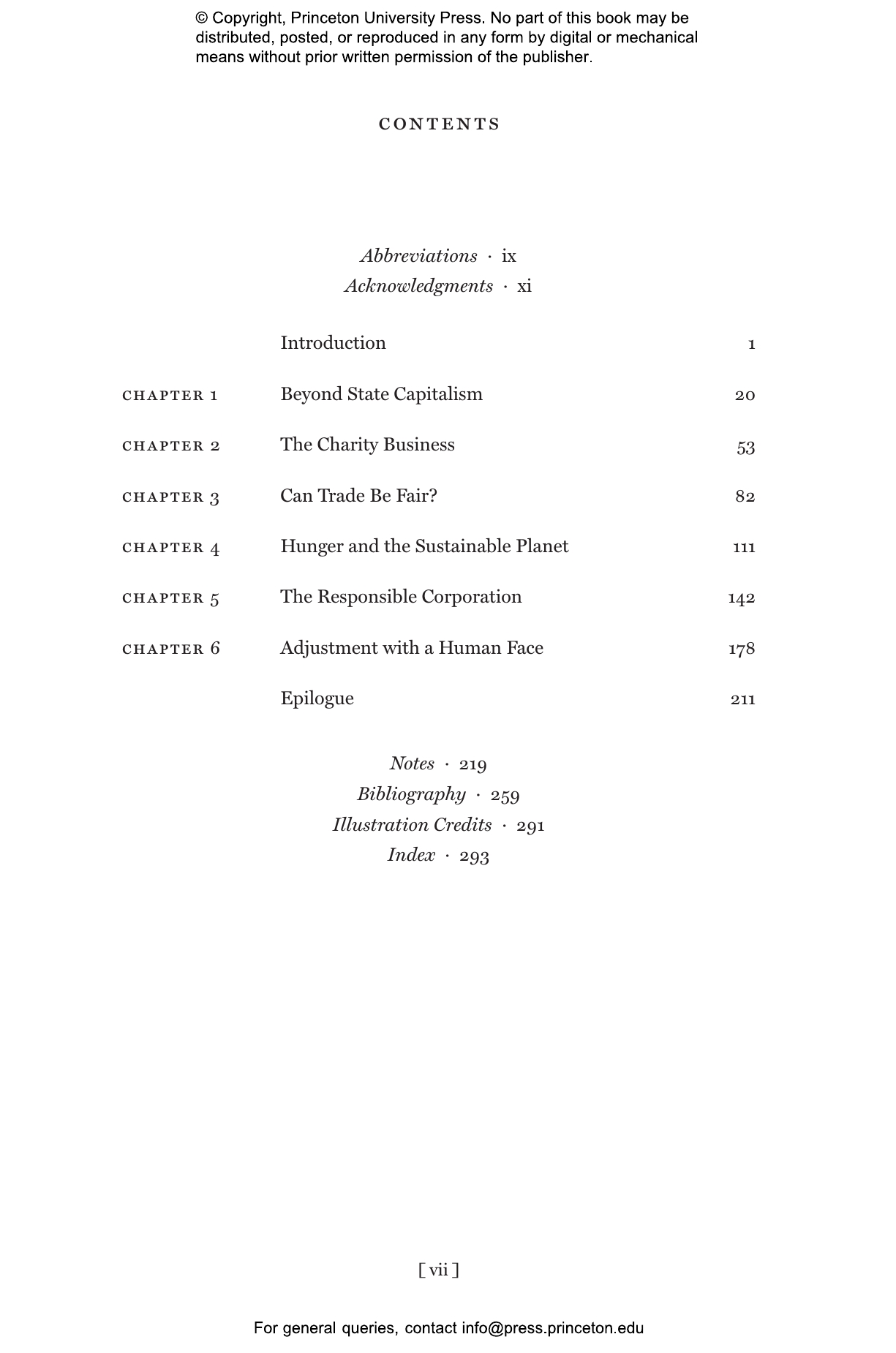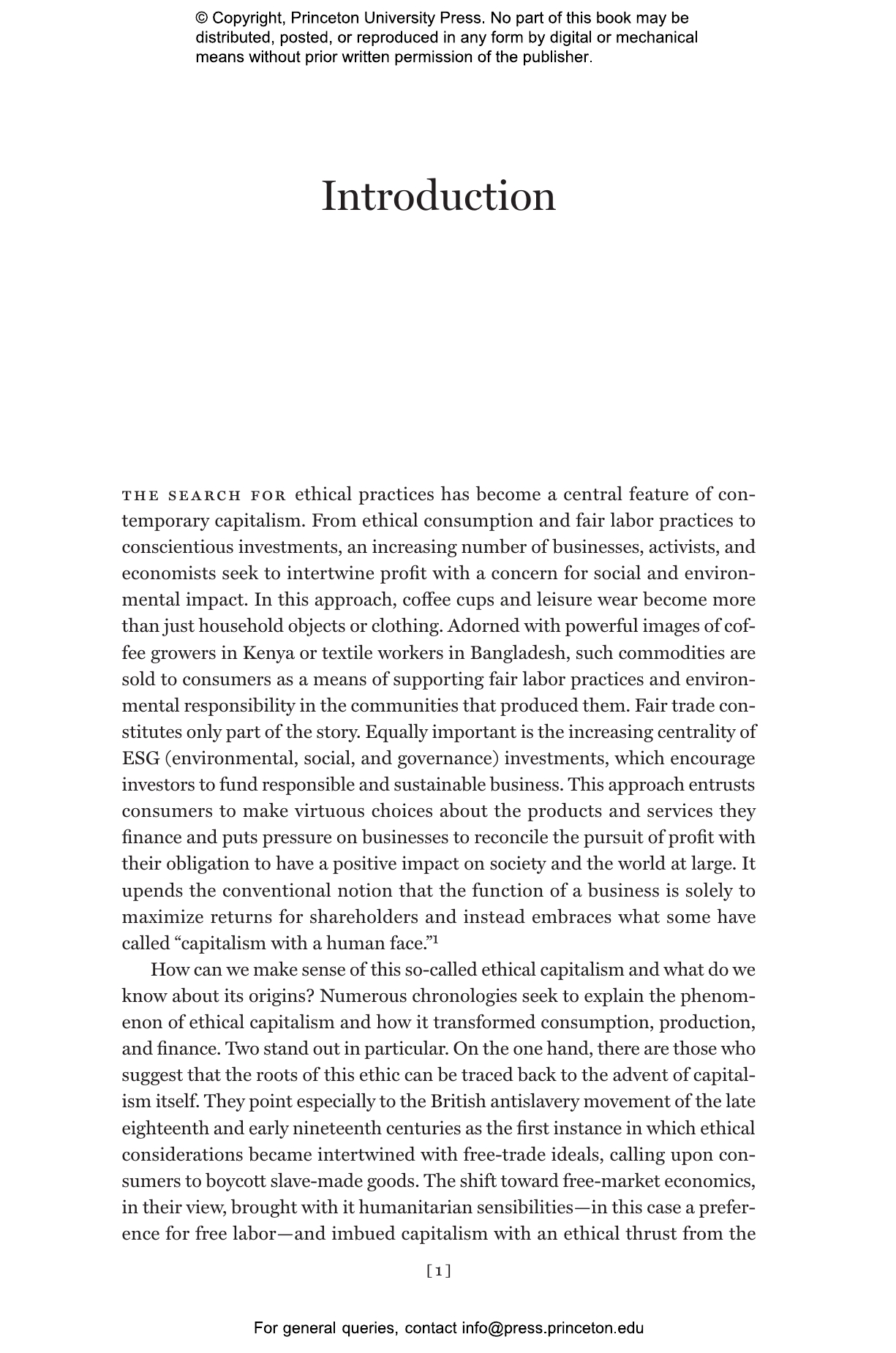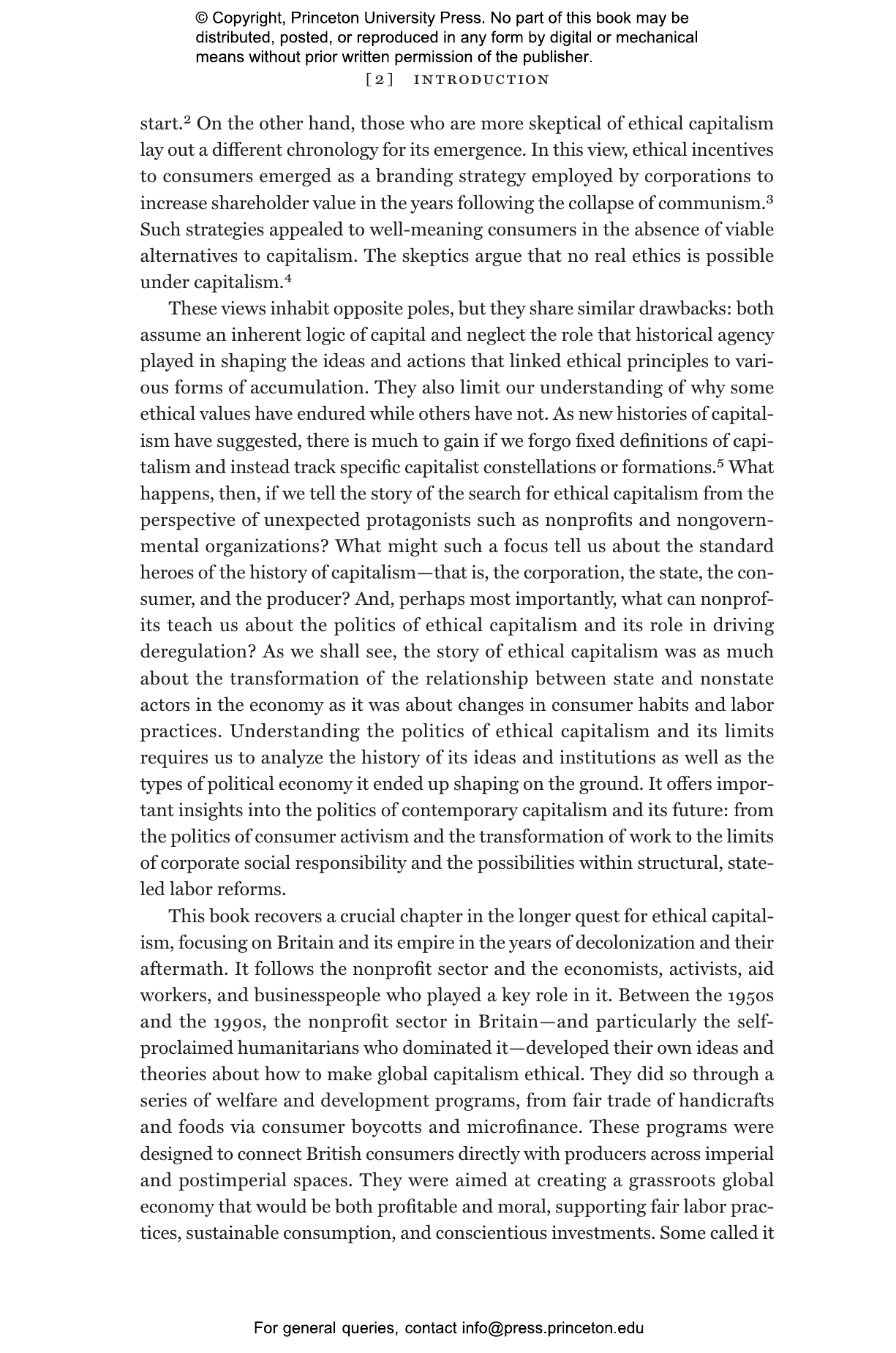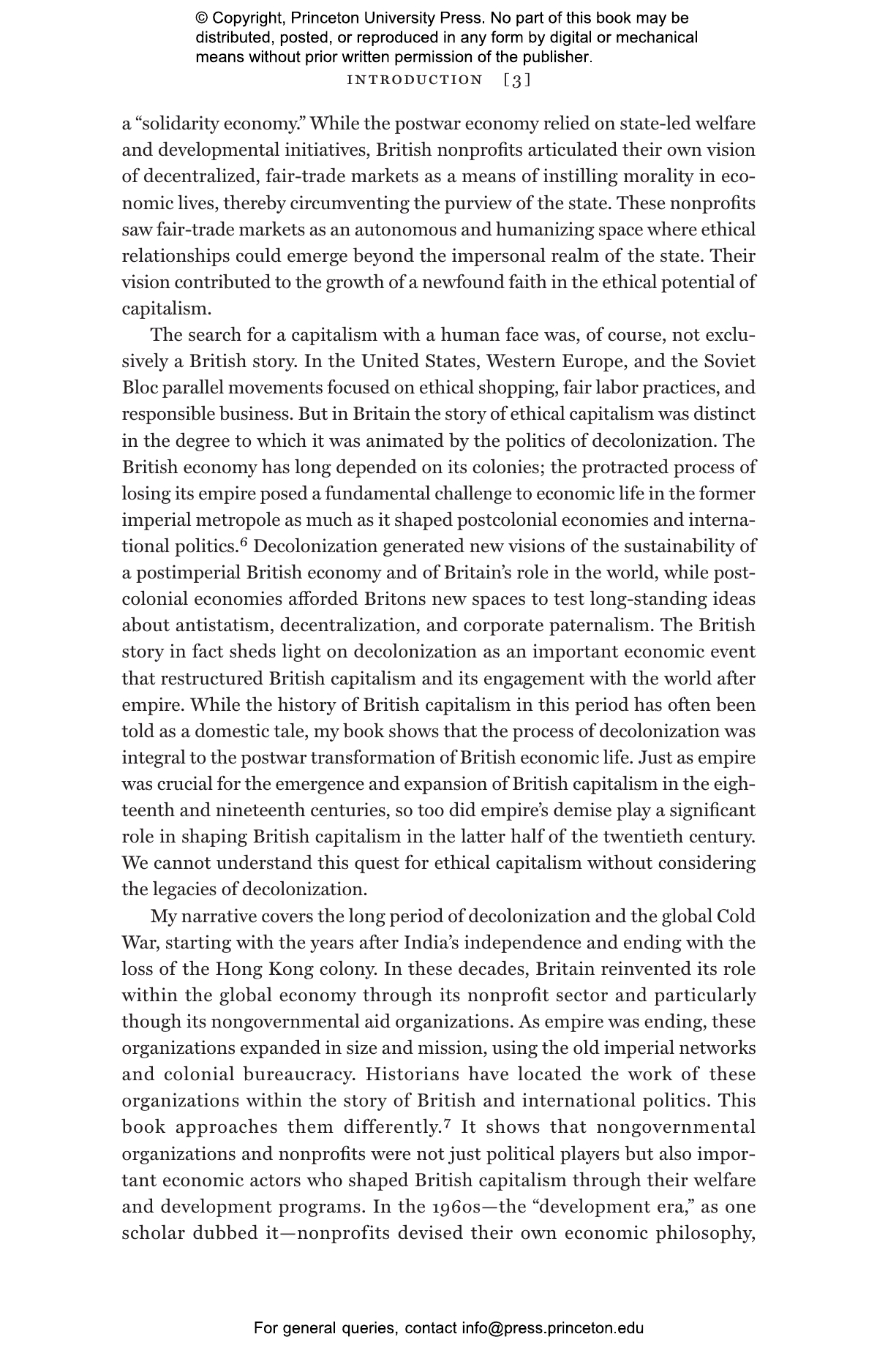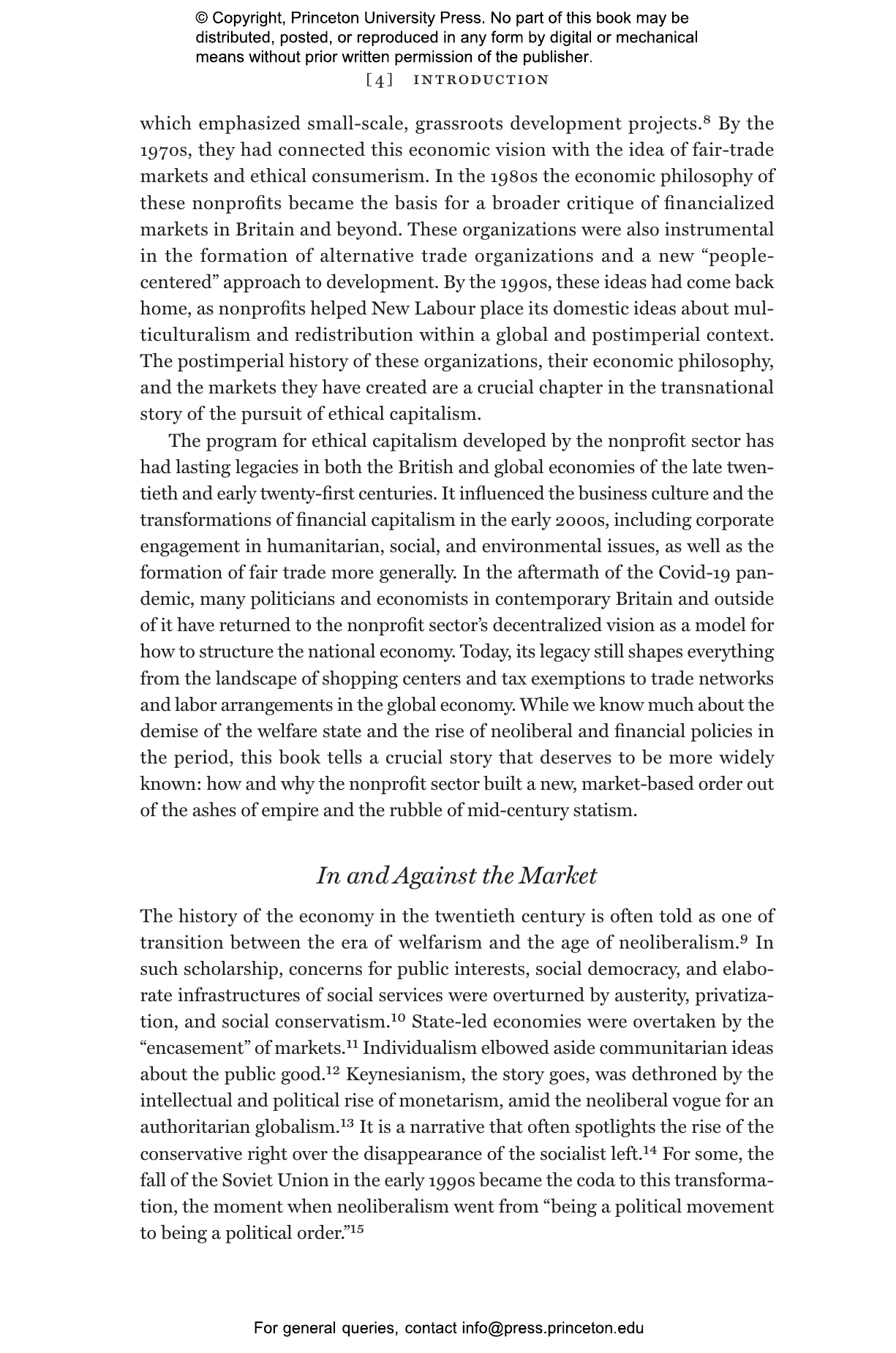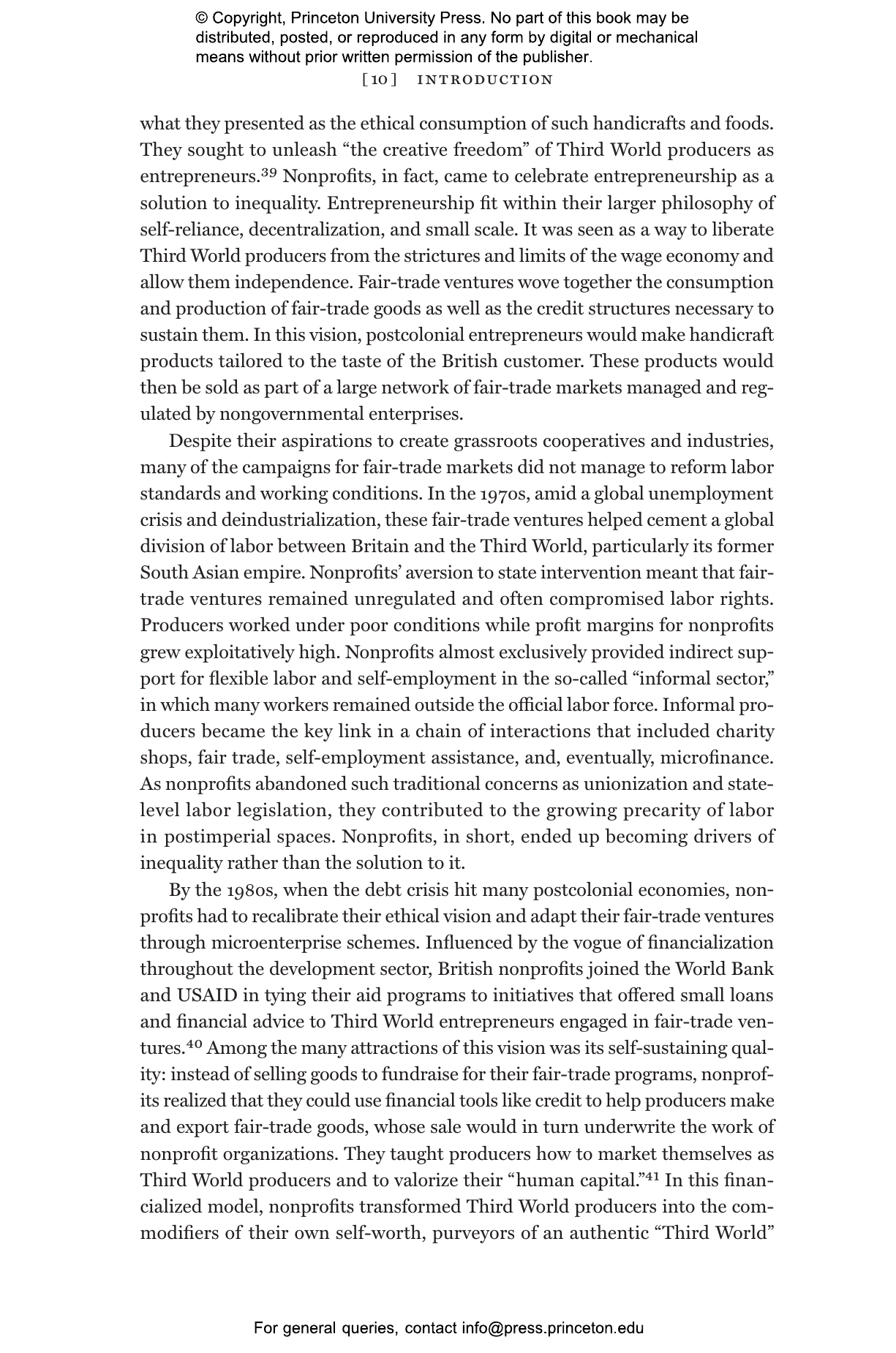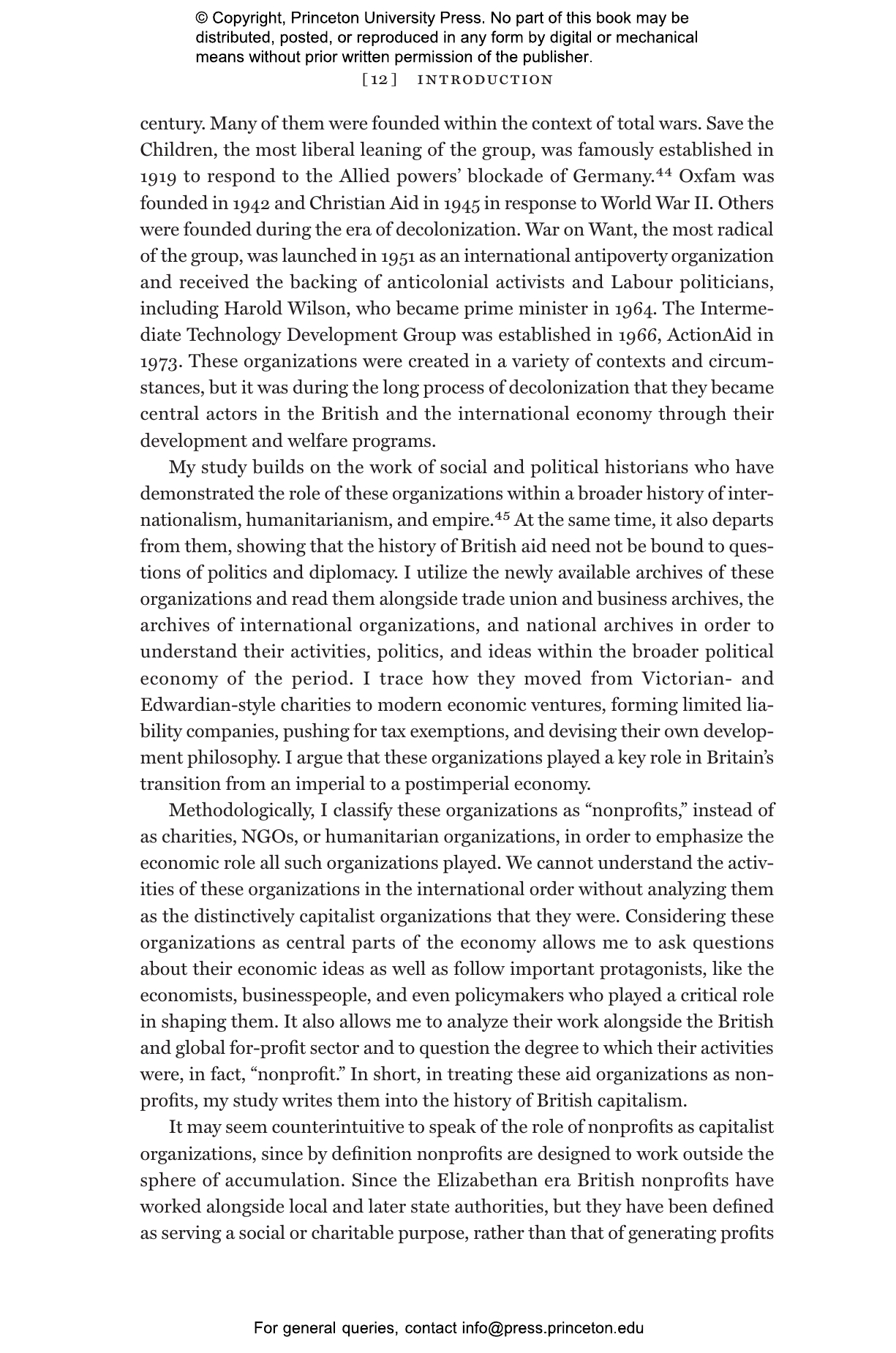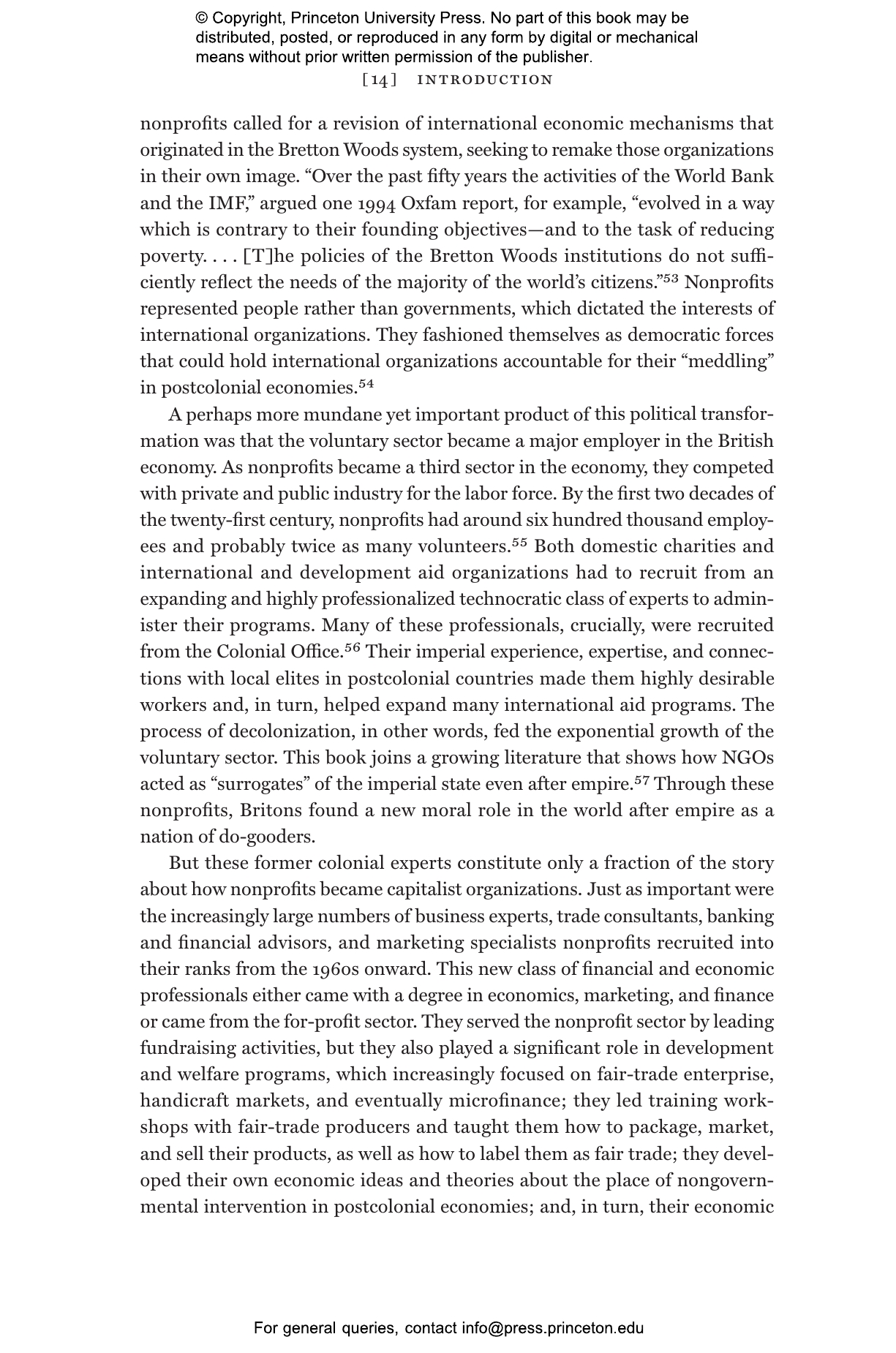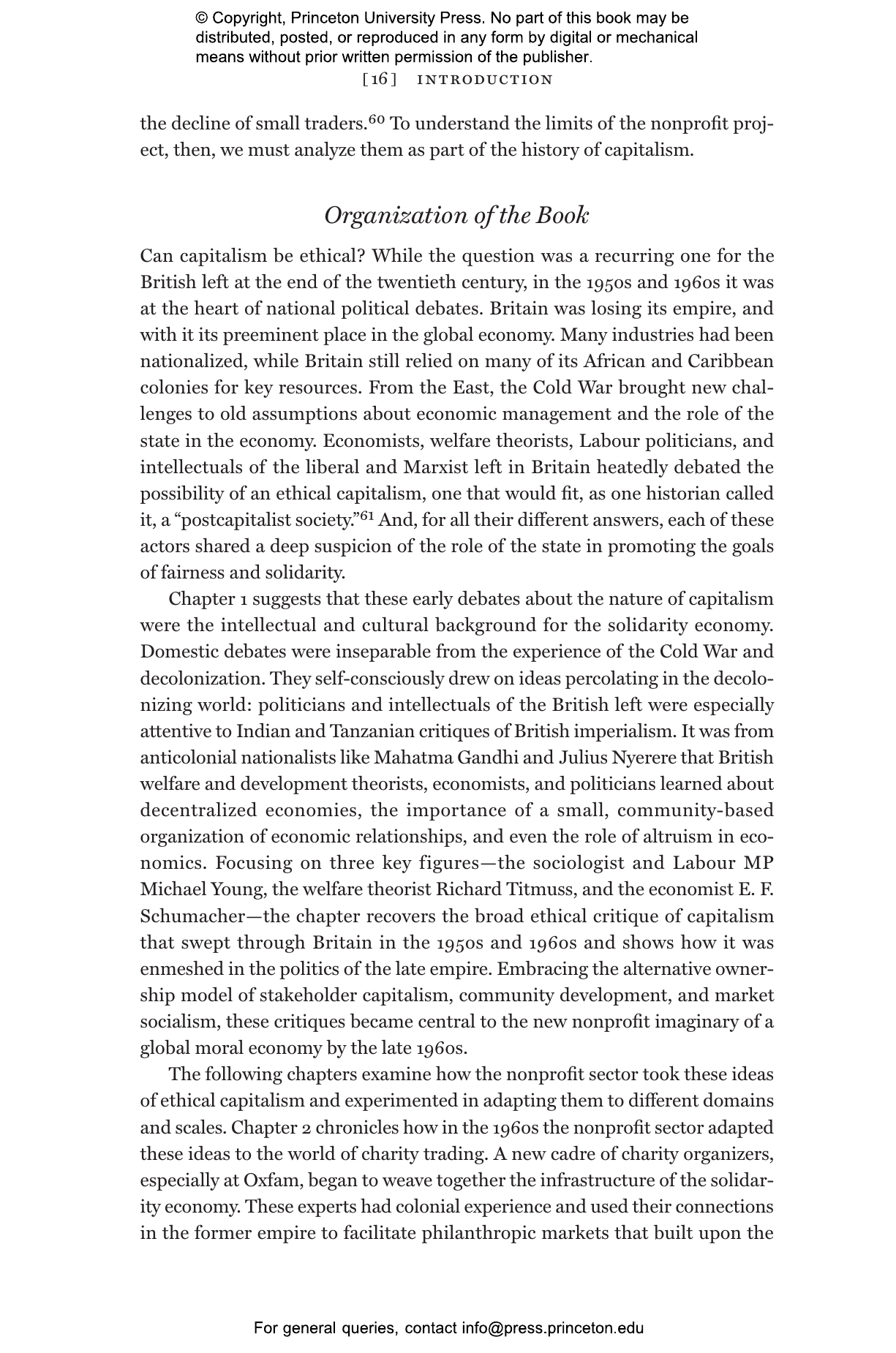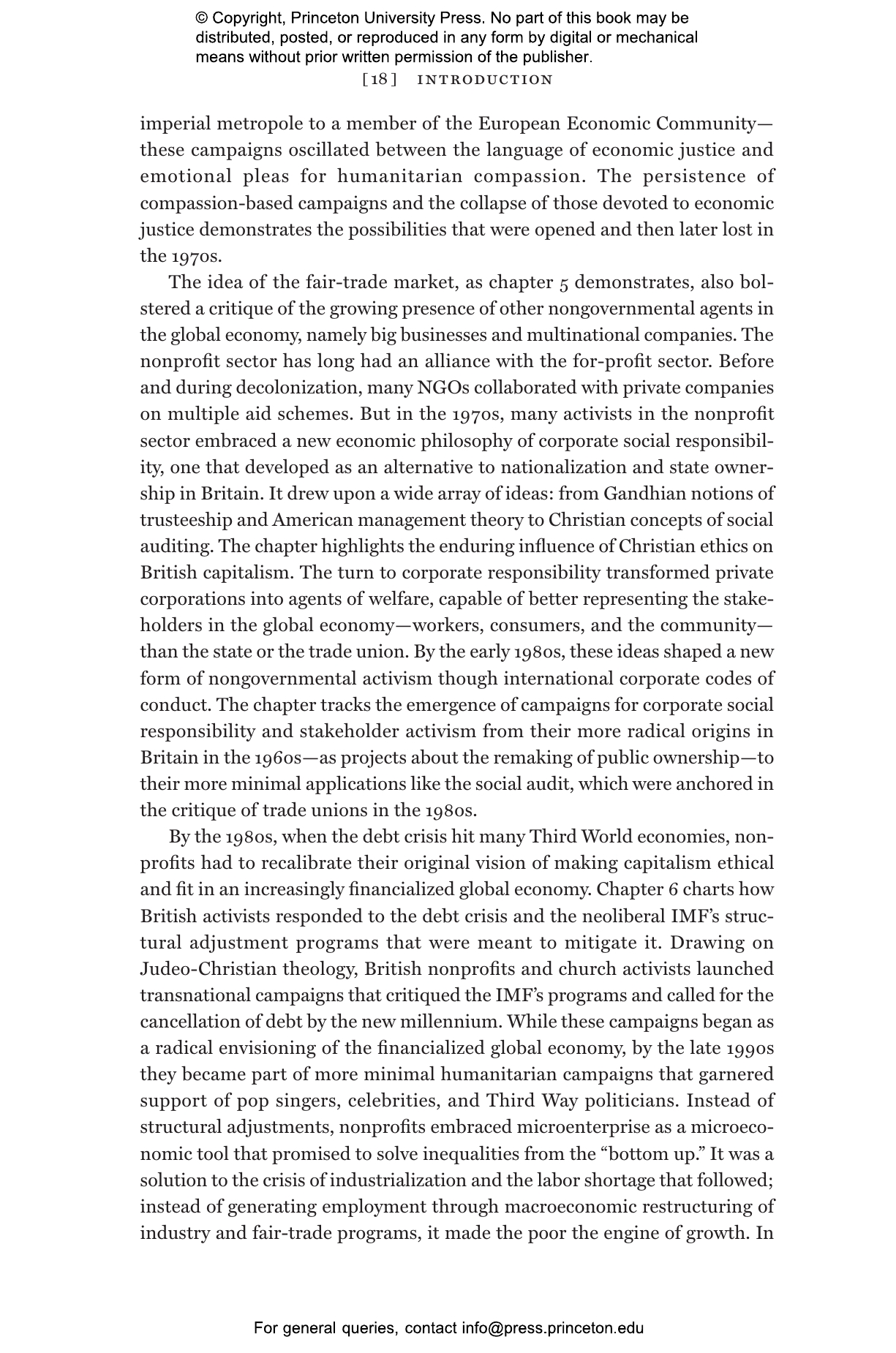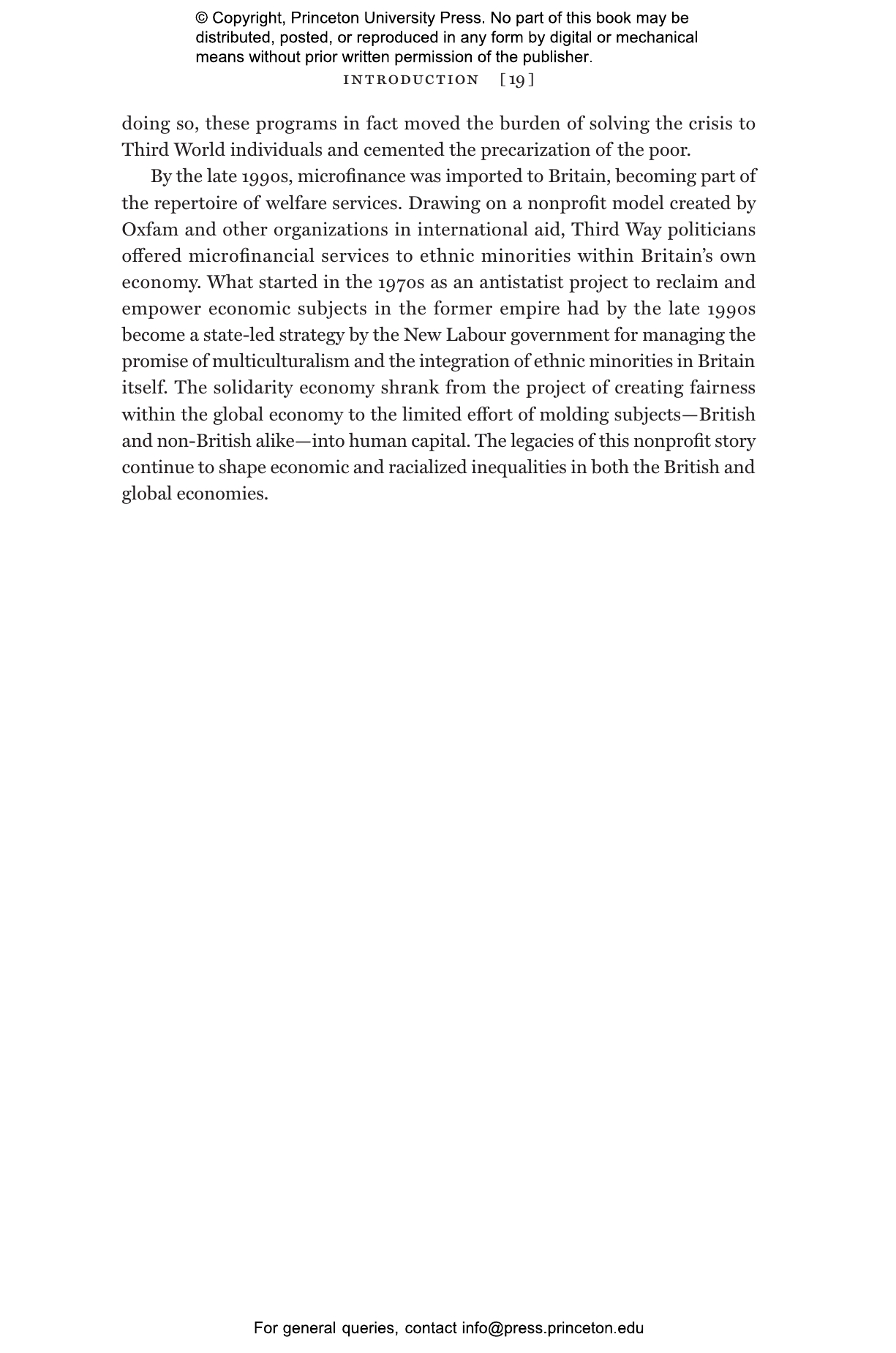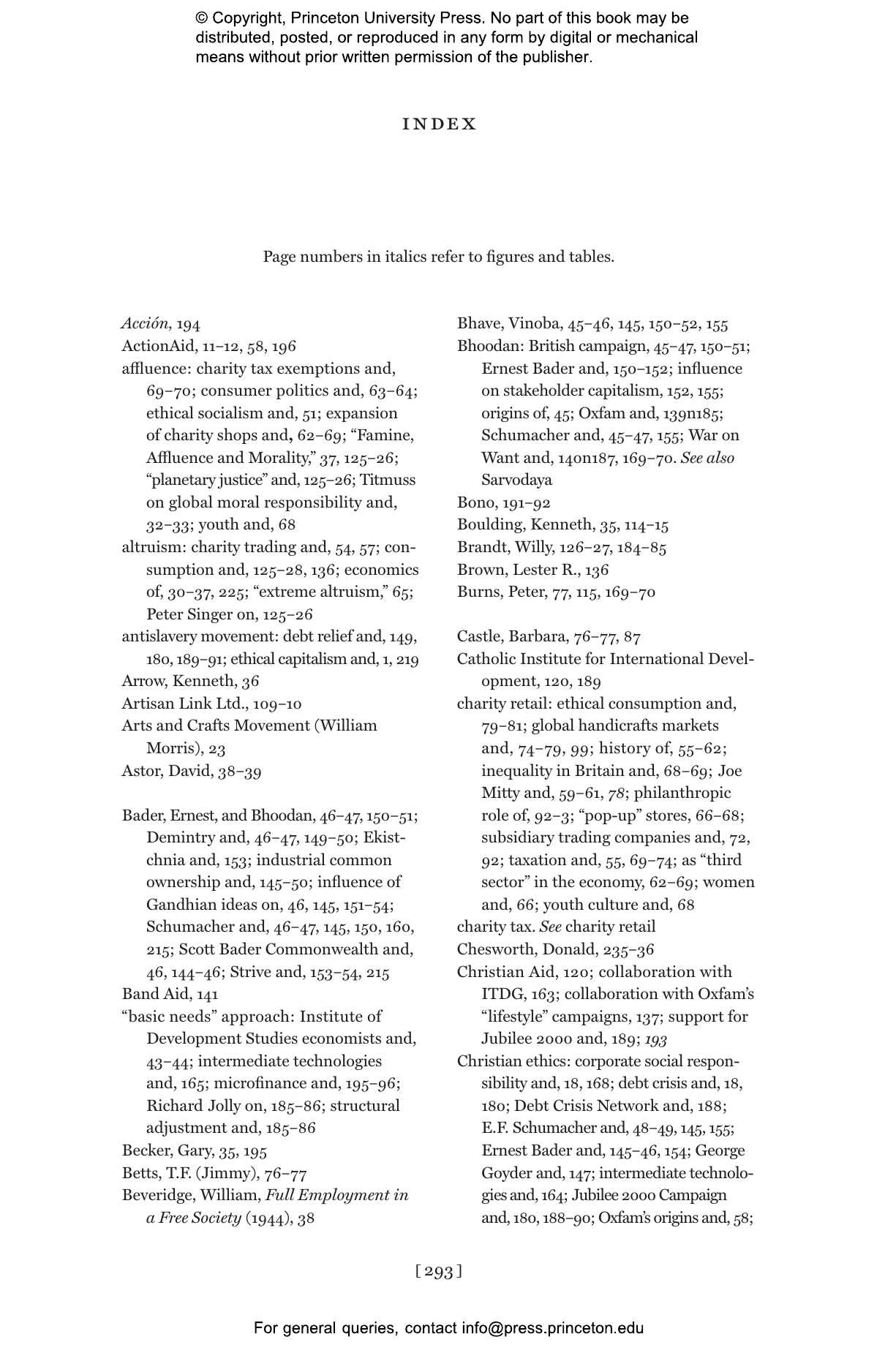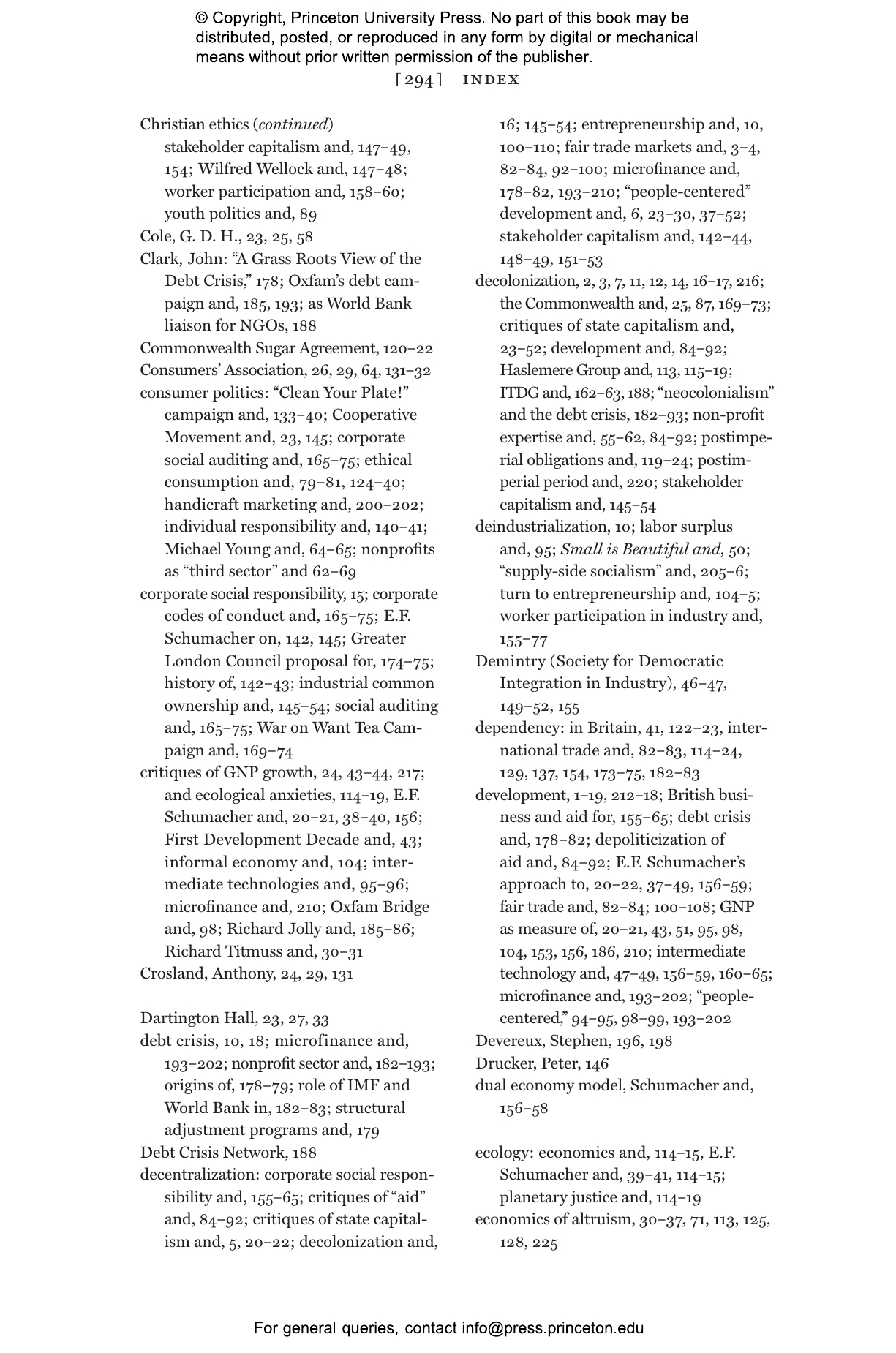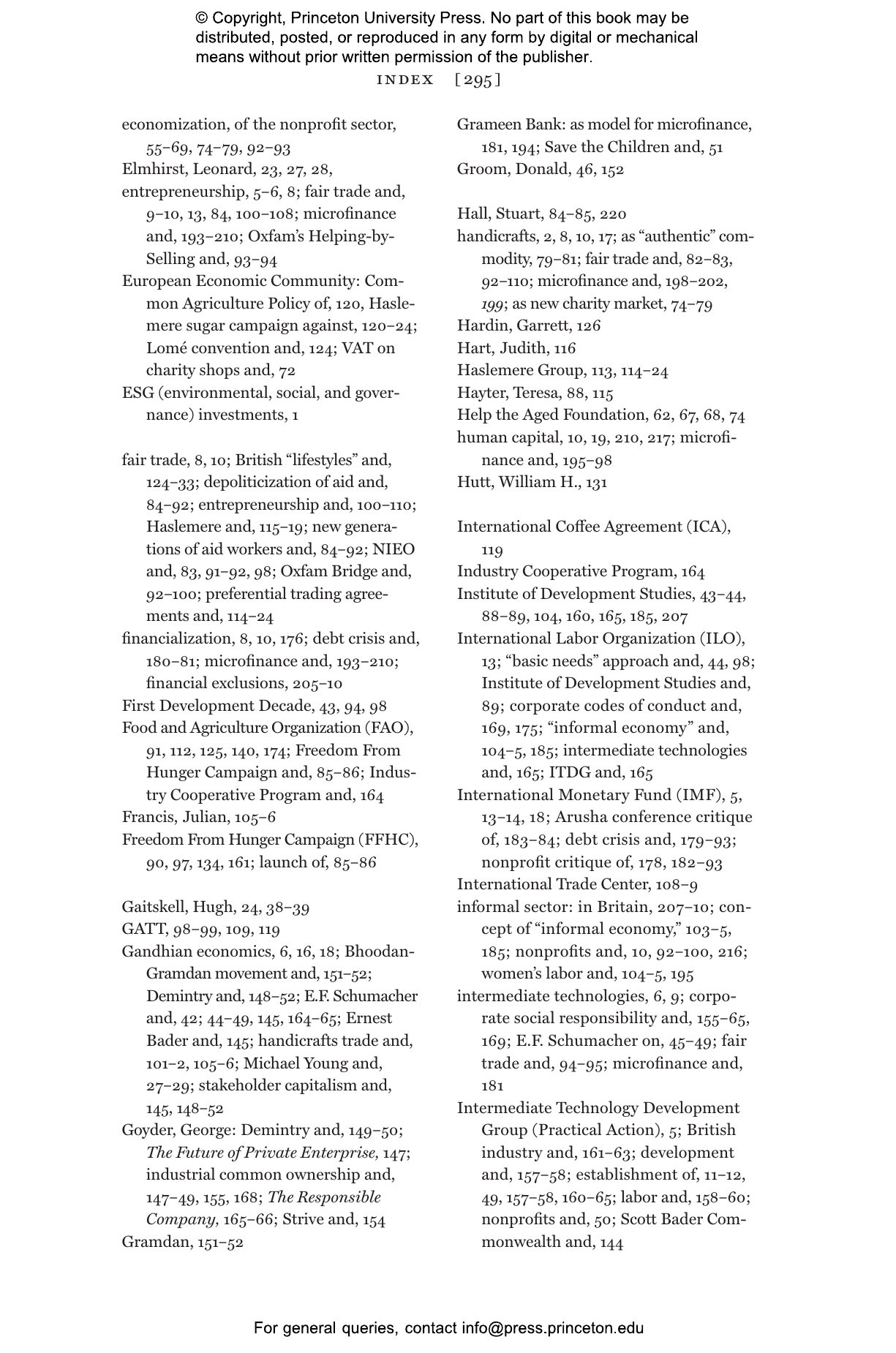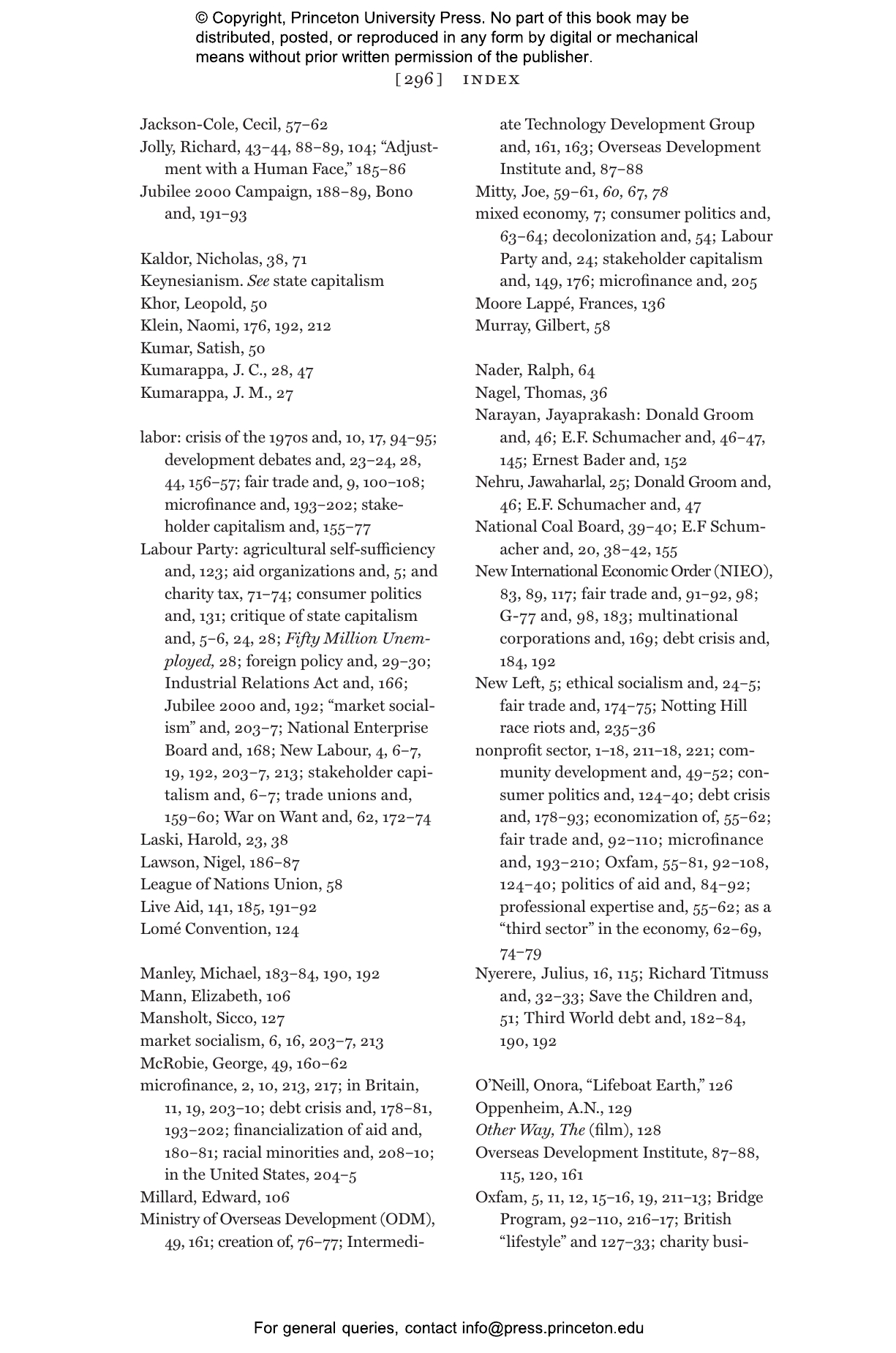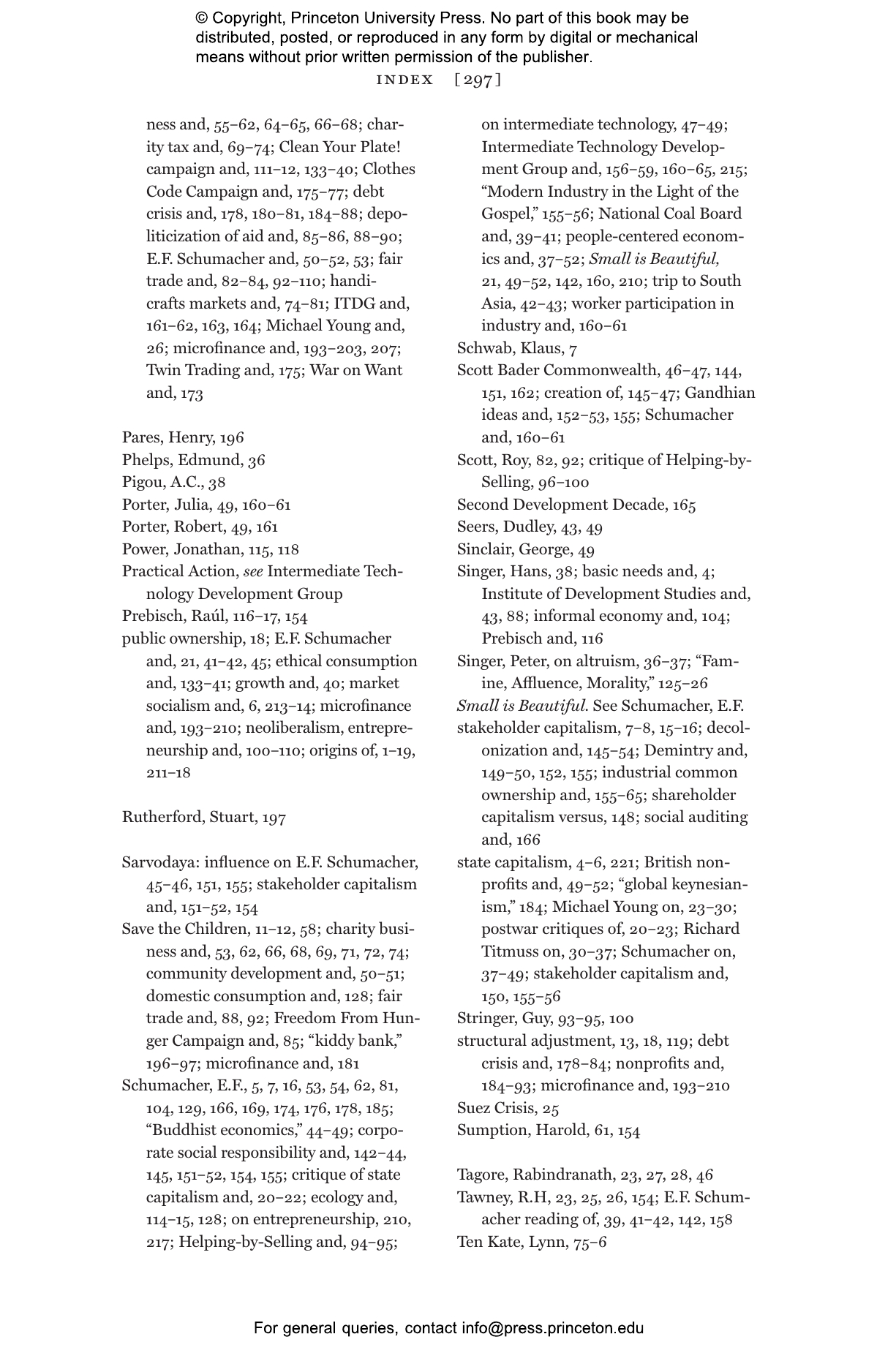After India gained independence in 1947, Britain reinvented its role in the global economy through nongovernmental aid organizations. Utilizing existing imperial networks and colonial bureaucracy, the nonprofit sector sought an ethical capitalism, one that would equalize relationships between British consumers and Third World producers as the age of empire was ending. The Solidarity Economy examines the role of nonstate actors in the major transformations of the world economy in the postwar era, showing how British NGOs charted a path to neoliberalism in their pursuit of ethical markets.
Between the 1950s and 1990s, nonprofits sought to establish an alternative to Keynesianism through their welfare and development programs. Encouraging the fair trade of commodities and goods through microfinance, consumer boycotts, and corporate social responsibility, these programs emphasized decentralization, privatization, and entrepreneurship. Tehila Sasson tells the stories of the activists, economists, politicians, and businessmen who reimagined the marketplace as a workshop for global reform. She reveals how their ideas, though commonly associated with conservative neoliberal policies, were part of a nonprofit-driven endeavor by the liberal left to envision markets as autonomous and humanizing spaces, facilitating ethical relationships beyond the impersonal realm of the state.
Drawing on dozens of newly available repositories from nongovernmental, international, national, and business archives, The Solidarity Economy reconstructs the political economy of these markets—from handicrafts and sugar to tea and coffee—shedding critical light on the postimperial origins of neoliberalism.
"Sasson’s story is written for our times."—Susan Pedersen, London Review of Books
"Bold and ambitious. . . . [The Solidarity Economy] illuminates, with particular sharpness, the British left’s sustained engagement with the problem of economic inequality in the wake of empire."—Helen McCarthy, The Political Quarterly
"Provacative. . . . The Solidarity Economy traces the emergence of neoliberal thought to a surprising place: the universe of left-leaning reformers in postwar Britain, well before theneoliberal revolution under Margaret Thatcher."—Udi Greenberg, Boston Review
“Tehila Sasson has written a wonderful book that prompts us to think afresh about the histories of neoliberalism, capitalism, and empire. Focusing on the UK’s nonprofit sector during decolonization, she shows how theorists, activists, and policymakers sought to make capitalism ethical and developed a new political economy grounded on localist and participatory ideals. She offers an important critical history of this trend, posing searching questions about how nonprofits became entangled with the logic of markets and the disavowal of state-sponsored development.”—Ben Jackson, University of Oxford
“Tehila Sasson’s book challenges us to rethink the relationship between the end of empire and the birth of neoliberalism. This arresting and rich contribution to British history is a gift to anyone concerned with the fraught moral origins of our time.”—Samuel Moyn, Yale University
“Combining analytic acumen with a storyteller’s gift, Sasson challenges both mainstream and left accounts of ethical capitalism. This is a must-read for scholars of twentieth-century political economy.”—Wendy Brown, Institute for Advanced Study in 91ÌÒÉ«
“Too often, the story of global political economy since 1945 is told in terms of the opposition between state and market. Tehila Sasson’s original book leaves that storyline in tatters. The Solidarity Economy reveals how corporate social responsibility and fair trade can be fig leaves for elite avarice but they are also the products of decades of engagement between British socialists and the decolonizing world.”—Quinn Slobodian, author of Globalists: The End of Empire and the Birth of Neoliberalism
“Tehila Sasson’s groundbreaking book shows how nonprofits sought to build an ethical capitalism out of the ashes of the British Empire. By focusing on market reformers from the anti-totalitarian left rather than the Thatcherite right, Sasson compels us to rethink accepted origin stories of neoliberalism and confronts us with the true challenge of moving beyond it.”—Melinda Cooper, Australian National University
“Original and innovative. Sasson turns conventional wisdom on its head, tracing the origins of neoliberal economics to British NGOs of the 1960s, particularly those that professed a liberal humanitarian ethos. The Solidarity Economy is a beautifully written book—clear, erudite, and forceful.”—Emily Baughan, author of Saving the Children: Humanitarianism, Internationalism, and Empire
“A strikingly original contribution. Powerfully argued, The Solidarity Economy illustrates the hopes invested in the market in the second half of the twentieth century, offering an exciting and wide-ranging intervention in the histories of capitalism, ethics, and neoliberalism.”—Jordanna Bailkin, author of Unsettled: Refugee Camps and the Making of Multicultural Britain
“Sasson offers new ways of thinking about late twentieth-century British and international politics.”—Kevin O’Sullivan, author of The NGO Moment: The Globalisation of Compassion from Biafra to Live Aid
This publication has been produced to meet accepted Accessibility standards and contains various accessibility features including concise image descriptions, a table of contents, a page list to navigate to pages corresponding to the print source version, and elements such as headings for structured navigation. Appearance of the text and page layout can be modified according to the capabilities of the reading system.
Accessibility Features
-
WCAG v2.2
-
WCAG level AA
-
Table of contents navigation
-
Single logical reading order
-
Short alternative textual descriptions
-
Print-equivalent page numbering
-
Landmark navigation
-
Index navigation
-
Epub Accessibility Specification 1.1
-
ARIA roles provided
-
All non-decorative content supports reading without sight
-
No known hazards or warnings



